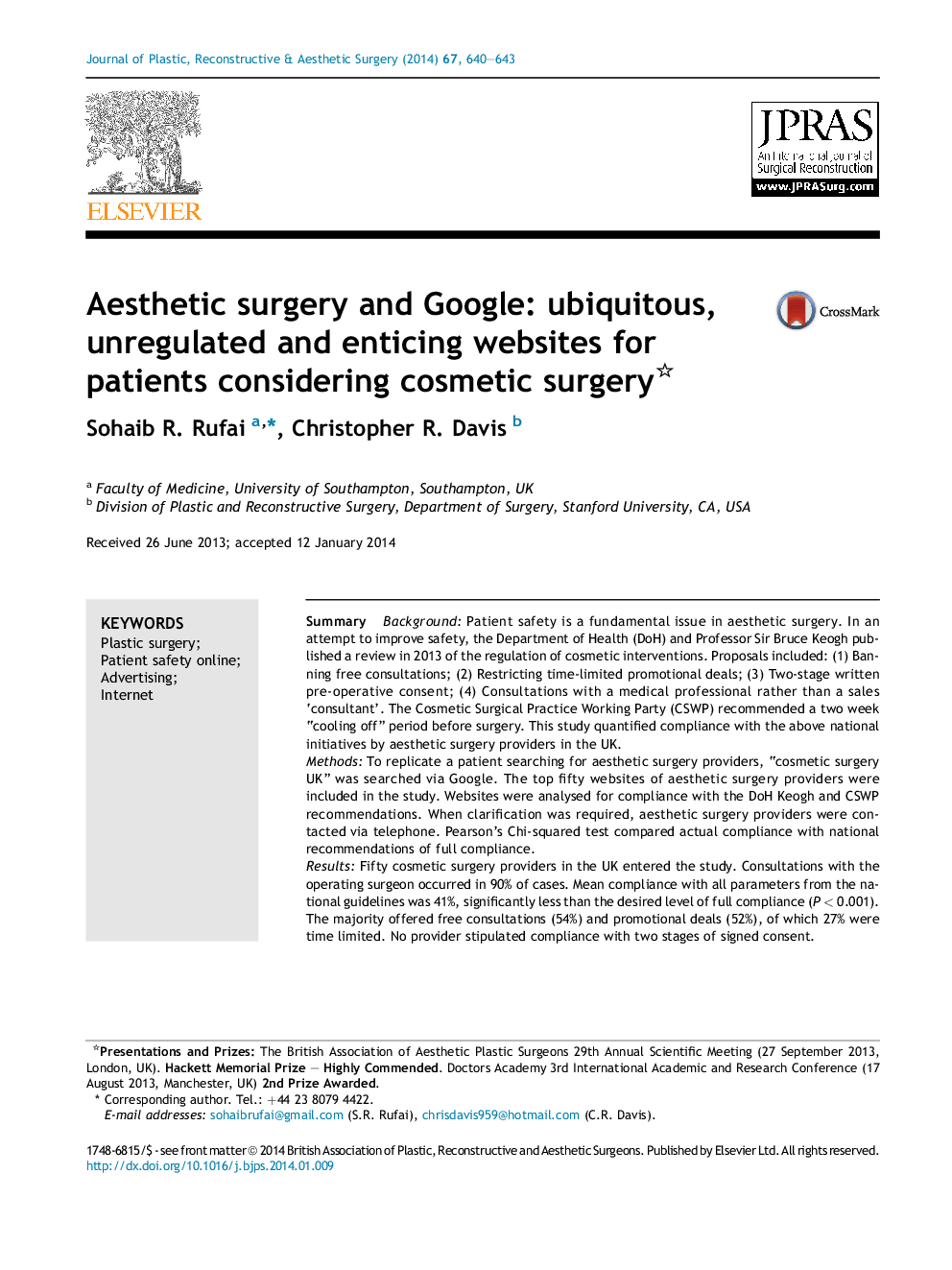| Article ID | Journal | Published Year | Pages | File Type |
|---|---|---|---|---|
| 4117799 | Journal of Plastic, Reconstructive & Aesthetic Surgery | 2014 | 4 Pages |
SummaryBackgroundPatient safety is a fundamental issue in aesthetic surgery. In an attempt to improve safety, the Department of Health (DoH) and Professor Sir Bruce Keogh published a review in 2013 of the regulation of cosmetic interventions. Proposals included: (1) Banning free consultations; (2) Restricting time-limited promotional deals; (3) Two-stage written pre-operative consent; (4) Consultations with a medical professional rather than a sales ‘consultant’. The Cosmetic Surgical Practice Working Party (CSWP) recommended a two week “cooling off” period before surgery. This study quantified compliance with the above national initiatives by aesthetic surgery providers in the UK.MethodsTo replicate a patient searching for aesthetic surgery providers, “cosmetic surgery UK” was searched via Google. The top fifty websites of aesthetic surgery providers were included in the study. Websites were analysed for compliance with the DoH Keogh and CSWP recommendations. When clarification was required, aesthetic surgery providers were contacted via telephone. Pearson's Chi-squared test compared actual compliance with national recommendations of full compliance.ResultsFifty cosmetic surgery providers in the UK entered the study. Consultations with the operating surgeon occurred in 90% of cases. Mean compliance with all parameters from the national guidelines was 41%, significantly less than the desired level of full compliance (P < 0.001). The majority offered free consultations (54%) and promotional deals (52%), of which 27% were time limited. No provider stipulated compliance with two stages of signed consent.ConclusionThis study demonstrated low compliance with national guidelines for aesthetic surgery. Aggressive sales techniques and enticing offers by aesthetic surgery providers were widespread. Statutory government guidelines on aesthetic surgery and increased public awareness into potential risks from inappropriate cosmetic surgery may improve patient decision making and safety.
